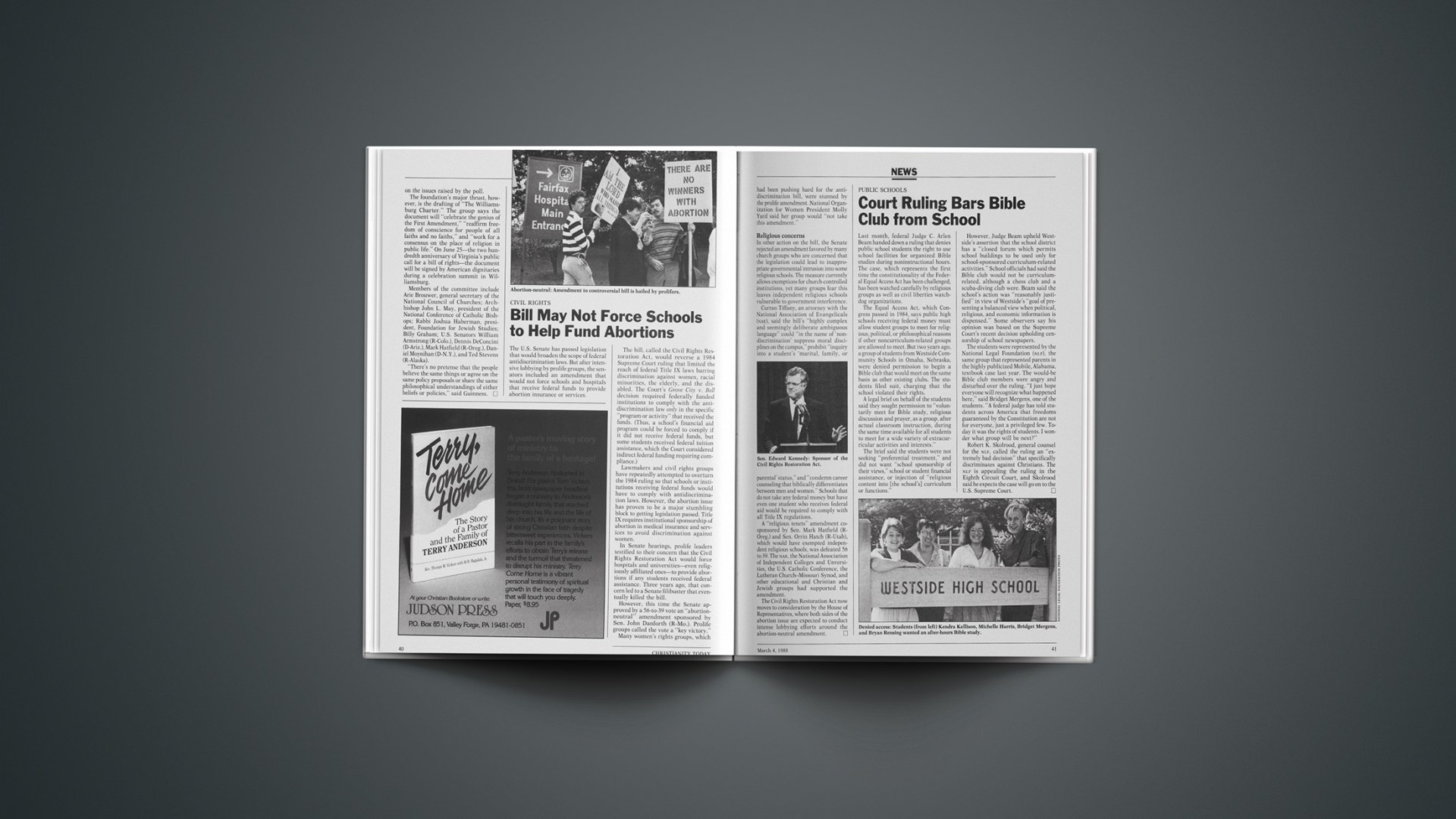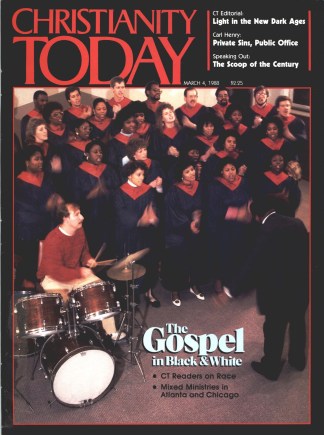Last month, federal Judge C. Arlen Beam handed down a ruling that denies public school students the right to use school facilities for organized Bible studies during noninstructional hours. The case, which represents the first time the constitutionality of the Federal Equal Access Act has been challenged, has been watched carefully by religious groups as well as civil liberties watchdog organizations.
The Equal Access Act, which Congress passed in 1984, says public high schools receiving federal money must allow student groups to meet for religious, political, or philosophical reasons if other noncurriculum-related groups are allowed to meet. But two years ago, a group of students from Westside Community Schools in Omaha, Nebraska, were denied permission to begin a Bible club that would meet on the same basis as other existing clubs. The students filed suit, charging that the school violated their rights.
A legal brief on behalf of the students said they sought permission to “voluntarily meet for Bible study, religious discussion and prayer, as a group, after actual classroom instruction, during the same time available for all students to meet for a wide variety of extracurricular activities and interests.”
The brief said the students were not seeking “preferential treatment,” and did not want “school sponsorship of their views,” school or student financial assistance, or injection of “religious content into [the school’s] curriculum or functions.”
However, Judge Beam upheld Westside’s assertion that the school district has a “closed forum which permits school buildings to be used only for school-sponsored curriculum-related activities.” School officials had said the Bible club would not be curriculum-related, although a chess club and a scuba-diving club were. Beam said the school’s action was “reasonably justified” in view of Westside’s “goal of presenting a balanced view when political, religious, and economic information is dispensed.” Some observers say his opinion was based on the Supreme Court’s recent decision upholding censorship of school newspapers.
The students were represented by the National Legal Foundation (NLF), the same group that represented parents in the highly publicized Mobile, Alabama, textbook case last year. The would-be Bible club members were angry and disturbed over the ruling. “I just hope everyone will recognize what happened here,” said Bridget Mergens, one of the students. “A federal judge has told students across America that freedoms guaranteed by the Constitution are not for everyone, just a privileged few. Today it was the rights of students. I wonder what group will be next?”
Robert K. Skolrood, general counsel for the NLF, called the ruling an “extremely bad decision” that specifically discriminates against Christians. The NLF is appealing the ruling in the Eighth Circuit Court, and Skolrood said he expects the case will go on to the U.S. Supreme Court.










